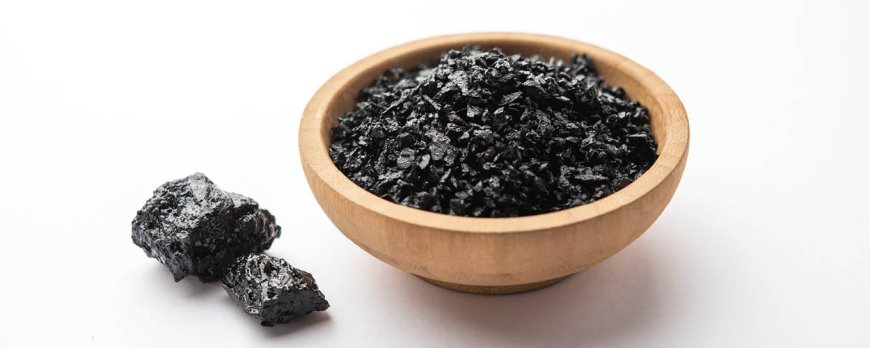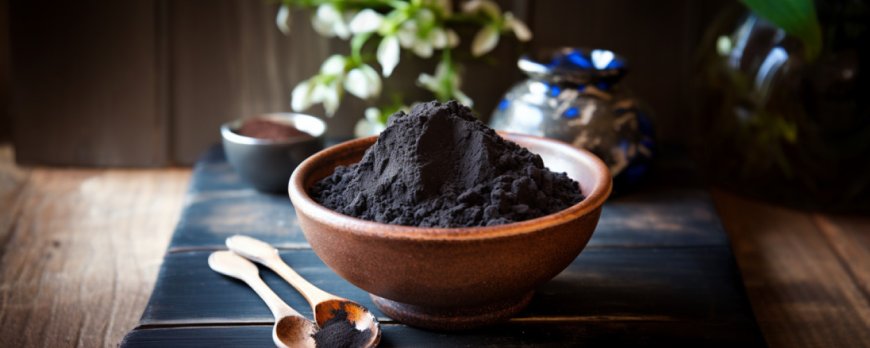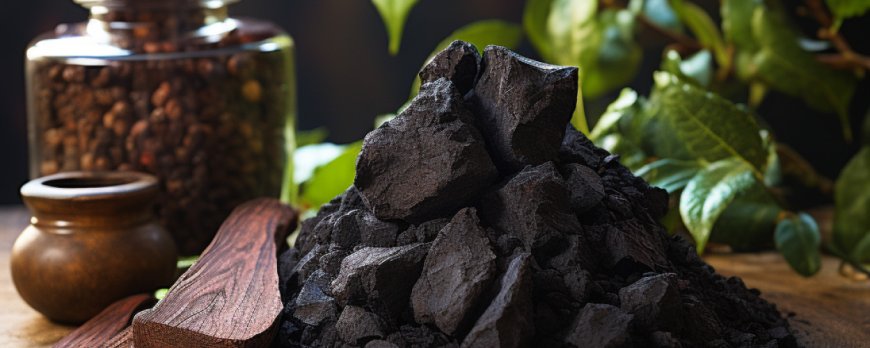Is it safe to take Shilajit daily?
Uncover the answer to 'Is it safe to take Shilajit daily?' Understand the risks, benefits, and daily dosage guidelines for Shilajit intake.

Is it safe to take Shilajit daily?
Shilajit is a dietary supplement that has gained popularity for its potential health benefits, but is it safe to take it daily?
Key Takeaways:
- Taking shilajit daily as a dietary supplement may have potential health benefits, but there are safety considerations to take into account.
- Shilajit is rich in minerals and contains an antioxidant known as fulvic acid, which has been studied for its potential role in various health conditions.
- More research is needed to support the claims of shilajit's benefits, as existing studies have limitations.
- Shilajit is not regulated by the FDA, raising concerns about contamination and quality control.
- Specific populations, such as pregnant or breastfeeding individuals, children, and those with certain medical conditions, should avoid shilajit.
- Consulting with a healthcare provider is recommended before taking shilajit or any supplement to ensure proper dosage and potential interactions with medications.

Understanding Shilajit
Before delving into the safety of taking Shilajit daily, let's understand what it is and what benefits it may offer. Shilajit is a sticky resin that is formed over centuries from the decomposition of plant and microbial matter in the Himalayan mountains. It is rich in minerals and contains an antioxidant known as fulvic acid, which has been studied for its potential health benefits.
Shilajit has been traditionally used in Ayurvedic medicine for centuries due to its believed rejuvenating properties. It is said to have adaptogenic qualities, meaning it may help the body adapt to stress and improve overall well-being. Some of the potential health benefits associated with Shilajit include:
- Alzheimer's Disease: Research suggests that fulvic acid found in Shilajit may have protective effects on brain cells and could potentially play a role in the prevention or management of Alzheimer's disease.
- Low Testosterone Levels: Shilajit has been studied for its potential to increase testosterone levels in men. However, more research is needed to fully understand its effectiveness and safety in this regard.
- Chronic Fatigue Syndrome: Shilajit is believed to enhance energy levels and combat fatigue, making it a potential supplement for individuals with chronic fatigue syndrome.
- Aging: Some studies have suggested that Shilajit may have anti-aging properties due to its antioxidant activity and ability to enhance mitochondrial function.
It is important to note that while Shilajit may offer potential health benefits, more research is needed to support these claims. Most studies have been conducted on animals or in small sample sizes, and further investigation is required to determine its effectiveness and safety in humans.
Additionally, it is crucial to be aware that Shilajit is not regulated by the FDA. This lack of regulation raises concerns about the quality and safety of shilajit supplements, particularly in raw or unprocessed forms. Contamination with heavy metals or fungus is a potential risk. Therefore, it is recommended to exercise caution and source Shilajit from reputable manufacturers who follow strict quality control measures.
Potential Side Effects of Shilajit
While Shilajit may offer potential health benefits, it is essential to consider the potential side effects and safety precautions. Some individuals may experience gastrointestinal discomfort, allergic reactions, or changes in blood pressure when taking Shilajit. Moreover, pregnant or breastfeeding individuals, children, and those with conditions such as hemochromatosis or concerns with testosterone should avoid Shilajit intake. Additionally, it is always advisable to consult with a healthcare provider before incorporating Shilajit or any dietary supplement into your routine, especially if you are on medications, to ensure there are no potential interactions and to determine an appropriate dosage.

Potential Health Benefits of Shilajit
Shilajit is believed to offer a range of health benefits, but it's important to understand the proper dosage to experience these potential advantages. This natural substance is rich in minerals and contains an antioxidant called fulvic acid, which has garnered attention for its potential role in various health conditions.
Some studies suggest that shilajit may have positive effects on Alzheimer's disease, low testosterone levels, chronic fatigue syndrome, aging, high altitude sickness, iron deficiency anemia, infertility, and heart health. However, it's crucial to note that most of these studies have been conducted on animals or in small sample sizes, so further research is needed to fully support these claims.
It's also important to be aware that shilajit is not regulated by the FDA, which means there may be concerns about the quality and potential contamination with heavy metals or fungus, especially in raw or unprocessed forms. Therefore, it is crucial to exercise caution when purchasing shilajit products and only choose reputable sources.
Recommended Dosage and Considerations
- When considering shilajit supplementation, it is highly recommended to consult with a healthcare provider to determine the appropriate dosage for your specific needs and health conditions.
- Pregnant or breastfeeding individuals should avoid shilajit, as there is limited research on its safety during these periods.
- Children should also avoid shilajit due to the lack of research on its effects in this population.
- Individuals with certain medical conditions, such as hemochromatosis (iron overload disorder) or concerns with testosterone, should exercise caution and seek medical advice before using shilajit.
- It's important to note that shilajit may interact with certain medications, so it's crucial to inform your healthcare provider about all the medications you are currently taking.
Overall, while shilajit shows promise in potentially benefiting certain health conditions, it is essential to approach its use with caution. Consulting with a healthcare professional is vital to ensure an appropriate dosage and to consider potential interactions or risks based on individual health circumstances.
Safety Considerations for Shilajit Intake
While Shilajit may offer health benefits, it's crucial to be aware of the safety precautions surrounding its intake. Before incorporating Shilajit into your daily routine, it is important to consider the following:
- Consult with a healthcare provider: It is always advisable to consult with a healthcare provider before taking any new supplement, including Shilajit. They can provide personalized advice based on your specific health needs and potential interactions with other medications.
- Avoid during pregnancy and breastfeeding: Shilajit should be avoided by pregnant or breastfeeding individuals due to the lack of research on its safety during these periods. It is better to err on the side of caution and prioritize the well-being of both the mother and the baby.
- Children: Shilajit is not recommended for children, as their bodies may respond differently to supplements than adults. It is best to discuss its usage with a pediatrician or healthcare provider for children.
- Medical conditions: If you have certain medical conditions, such as hemochromatosis (iron overload disorder) or concerns with testosterone levels, it is advisable to avoid Shilajit. It is prudent to consult with a healthcare provider to ensure its compatibility with your specific health situation.
Furthermore, it is important to note that Shilajit is not regulated by the FDA. This absence of regulation raises concerns about the quality control and potential contamination with heavy metals or fungus in raw or unprocessed forms. Therefore, it is essential to source Shilajit from reputable manufacturers or suppliers that prioritize quality and safety.
By considering these safety precautions and seeking guidance from healthcare professionals, you can make informed decisions about Shilajit intake and reduce potential risks. Remember, individual responses to supplements can vary, so it's essential to monitor your body and seek medical advice if any adverse effects occur. Take care of your health and make well-informed choices.
Lack of FDA Regulation for Shilajit
As a dietary supplement, Shilajit is not regulated by the FDA, raising concerns about its safety and quality control. Without FDA oversight, there is a lack of standardized manufacturing processes and testing procedures for Shilajit products. This leaves consumers at risk of purchasing contaminated or low-quality supplements, as there is no guarantee of the product's purity or potency.
One of the primary concerns with unregulated supplements like Shilajit is the potential for heavy metal contamination. Shilajit is sourced from the Himalayan mountains, where the soil naturally contains high levels of heavy metals such as lead and mercury. Without proper testing and quality control measures, these harmful substances can make their way into the final product, posing serious health risks to consumers.
Additionally, the lack of FDA regulation means that the claims made by manufacturers about the health benefits of Shilajit may not be supported by scientific evidence. While preliminary studies have shown promising results, more research is needed to fully understand the potential benefits and risks of Shilajit consumption. Without FDA oversight, there is no guarantee that the dosage recommendations provided by manufacturers are accurate or safe.
Given these concerns, it is crucial for individuals considering Shilajit supplementation to exercise caution and consult with a healthcare provider. A healthcare professional can help assess the potential risks and benefits, as well as provide guidance on choosing a reputable brand that undergoes third-party testing for purity and quality. By taking these precautionary measures, individuals can make more informed decisions about incorporating Shilajit into their daily routine while minimizing potential health risks.

Shilajit and Specific Populations
Certain populations need to take extra precautions when it comes to Shilajit consumption due to potential risks or interactions. While Shilajit has been studied for its potential health benefits, it is important to consider individual circumstances and consult with a healthcare provider before incorporating it into your daily routine.
Pregnant or breastfeeding individuals should avoid Shilajit, as there is limited research on its safety in these populations. The effects of Shilajit on fetal development or nursing infants are not well understood, and it is better to err on the side of caution.
Children should also avoid Shilajit, as their bodies are still developing and may not metabolize the supplement in the same way as adults. It is best to wait until they are older and consult a pediatrician before considering Shilajit as a dietary supplement.
Individuals with medical conditions such as hemochromatosis or concerns with testosterone should exercise caution when it comes to Shilajit consumption. Shilajit is known to contain high levels of iron, which may exacerbate iron overload in individuals with hemochromatosis. Additionally, Shilajit has been marketed as a testosterone booster, but its effects on hormone levels are not fully understood, and it may have unintended consequences in certain individuals.
As with any supplement, it is always advisable to consult with a healthcare provider before incorporating Shilajit into your daily routine. They can provide personalized advice based on your specific health needs, potential interactions with medications, and help determine an appropriate dosage to ensure your safety and well-being.
Shilajit and Medication Interactions
It is crucial to seek professional advice before combining Shilajit with other medications to prevent any adverse reactions. Shilajit contains various bioactive compounds that may interact with certain drugs, potentially affecting their efficacy or causing unwanted side effects. Additionally, Shilajit may have blood-thinning properties, which can further complicate the management of medications that already have anticoagulant effects.
If you are currently taking medications for any health condition, it is important to inform your healthcare provider about your interest in using Shilajit as a supplement. They will be able to evaluate your specific situation, take into account any potential contraindications, and provide personalized advice on whether Shilajit is safe for you to take alongside your current medications.
By consulting with a healthcare professional, you can ensure that you are making informed decisions regarding the use of Shilajit and reduce the risk of any adverse interactions or unintended consequences.

Research on Shilajit
Several studies have been conducted to explore the potential health benefits of Shilajit, though more research is needed to confirm these claims. Shilajit is a natural substance that is rich in minerals and contains fulvic acid, a powerful antioxidant. It has been studied for its potential role in various health conditions, including Alzheimer's disease, low testosterone levels, chronic fatigue syndrome, aging, high altitude sickness, iron deficiency anemia, infertility, and heart health.
Potential Health Benefits
Some studies suggest that Shilajit may have cognitive-enhancing properties, potentially benefiting individuals with Alzheimer's disease or age-related cognitive decline. Additionally, preliminary research on animals has shown that Shilajit may help increase testosterone levels, which could be beneficial for individuals with low testosterone.
Fulvic acid, the key component of Shilajit, has also been studied for its antioxidant and anti-inflammatory effects. These properties may contribute to its potential benefits in reducing chronic fatigue, improving energy levels, and supporting overall well-being.
Need for Further Research
While the existing research on Shilajit is promising, it is important to note that most studies have been conducted on animals or in small sample sizes. Therefore, more rigorous clinical trials are needed to validate these findings and determine the optimal dosage and long-term effects of Shilajit on human health.
Additionally, as Shilajit is not regulated by the FDA, there may be concerns about the quality and safety of certain products. Contamination with heavy metals or fungus in raw or unprocessed forms is a potential risk. Therefore, it is crucial to choose reputable sources and consult with a healthcare provider before starting any supplement regimen.
In summary, while Shilajit shows promise as a potential health supplement, more research is needed to fully understand its benefits and ensure its safety. Individuals considering Shilajit intake should exercise caution, especially if they fall into specific populations or have underlying medical conditions. Consulting with a healthcare provider is essential to determine the appropriate dosage and to address any concerns or potential interactions with other medications.
Recommended Shilajit Dosage
To ensure safe and effective use of Shilajit, understanding the recommended dosage and factors that may influence it is essential. While there is no standardized dosage for Shilajit, it is generally recommended to start with a low dosage and gradually increase as needed. The optimal dosage may vary depending on factors such as age, health condition, and desired benefits.
Here are some key considerations to keep in mind when determining your Shilajit dosage:
- Start with a low dosage: It is advisable to begin with a dosage of around 300 to 500 milligrams per day and assess how your body responds. This will allow you to gauge your tolerance and any potential side effects.
- Quality and purity: Ensure that the Shilajit you are consuming is from a reputable source and has undergone proper testing for heavy metals and other contaminants. Pure and high-quality Shilajit is essential to ensure safety and effectiveness.
- Consult with a healthcare provider: It is always recommended to consult with a healthcare provider or a qualified professional who is knowledgeable about Shilajit before starting any new supplement. They can provide personalized advice based on your specific health needs and help determine the appropriate dosage for you.
- Consider the form of Shilajit: Shilajit is available in different forms such as powder, resin, or capsules. Each form may have different concentrations, so it is important to follow the recommended dosage instructions provided by the manufacturer.
- Observe your body's response: Pay attention to how your body reacts to the dosage. If you experience any adverse effects or discomfort, reduce the dosage or discontinue use. It is essential to listen to your body and make adjustments accordingly.
Remember, Shilajit should be used as a supplement and not as a substitute for a healthy lifestyle or medical treatment. It is important to maintain a balanced diet, exercise regularly, and prioritize overall well-being. If you have any concerns or questions about Shilajit dosage or its potential interactions with medications, consult with your healthcare provider for personalized guidance.

Potential Risks and Side Effects of Shilajit
While Shilajit may offer health benefits, it is crucial to be aware of potential risks and side effects that may arise from its consumption. Here are some important considerations to keep in mind:
- Possible Allergic Reactions: Some individuals may be sensitive to Shilajit and experience allergic reactions such as rash, itching, or swelling. If you notice any of these symptoms, discontinue use and seek medical attention.
- Heavy Metal Contamination: Shilajit products sourced from contaminated environments may contain heavy metals like lead, mercury, or arsenic. To mitigate this risk, it is recommended to choose Shilajit from reputable manufacturers who perform rigorous testing to ensure product safety and quality.
- Increased Iron Levels: Shilajit is known to contain high levels of iron. While this can be beneficial for individuals with iron deficiency anemia, those with conditions such as hemochromatosis, a disorder causing excess iron absorption, should avoid Shilajit due to the potential risk of iron overload.
- Potential Interactions: Shilajit may interact with certain medications or supplements, altering their effectiveness. It is important to consult with a healthcare provider before taking Shilajit, especially if you are on medication, to ensure there are no potential interactions.
- Gastrointestinal Issues: Some individuals may experience digestive discomfort, such as an upset stomach or diarrhea, when taking Shilajit. If these symptoms persist or worsen, it is advisable to stop using the supplement.
Remember, Shilajit is not regulated by the FDA, and there is limited scientific research available on its long-term effects and safety. It is always best to err on the side of caution and seek professional advice before incorporating Shilajit or any other supplement into your daily routine.
In conclusion, while Shilajit shows promise for its potential health benefits, it is essential to carefully consider the potential risks and side effects associated with its consumption. Being well-informed and consulting with a healthcare provider is crucial to ensure your safety and well-being.
Long-Term Effects of Shilajit
As Shilajit is often consumed as a long-term supplement, exploring its potential long-term effects is important for those considering its regular intake. While research on the specific long-term effects of Shilajit is limited, there are a few key areas that have been studied.
1. Anti-Aging Properties: One of the potential benefits of Shilajit is its ability to act as an antioxidant, which may help slow down the aging process. Some studies suggest that the fulvic acid and other compounds in Shilajit may protect against oxidative stress and minimize cellular damage.
2. Cognitive Function: Shilajit has been studied for its potential impact on cognitive function and memory. Animal studies have shown promising results, indicating that Shilajit may help improve memory and learning abilities. However, more research is needed to fully understand its effects on human cognition.
3. Physical Performance:
Shilajit has also been explored for its potential benefits on physical performance and stamina. Some studies suggest that it may enhance energy production and increase endurance levels. Athletes and active individuals may consider Shilajit as a natural supplement to support their physical performance. However, more research is needed to confirm these findings and determine the appropriate dosage for optimal results.
While these studies provide some insight into the potential long-term effects of Shilajit, it is important to note that more comprehensive research is needed. It is always recommended to consult with a healthcare provider before starting any new supplement, especially for long-term use. They can help assess your individual needs, evaluate any potential risks or interactions, and provide personalized guidance on the appropriate dosage and duration of supplementation.
Conclusion
Taking Shilajit daily may offer potential health benefits, but it is essential to approach its consumption with caution and seek professional guidance for personalized recommendations.
Shilajit, a natural substance rich in minerals and fulvic acid, has been studied for its potential role in various health conditions, including Alzheimer's disease, low testosterone levels, chronic fatigue syndrome, aging, high altitude sickness, iron deficiency anemia, infertility, and heart health.
However, it is important to note that most of the research conducted on Shilajit has been on animals or in small sample sizes, and more studies are needed to support these claims. Additionally, it is crucial to consider that Shilajit is not regulated by the FDA, which raises concerns about potential contamination with heavy metals or fungus in raw or unprocessed forms.
Individuals who are pregnant or breastfeeding, children, and those with conditions such as hemochromatosis or concerns with testosterone should avoid Shilajit intake. Consulting with a healthcare provider before taking Shilajit or any supplement is recommended to ensure proper dosage and to address potential interactions with other medications.
FAQ
Is it safe to take Shilajit daily?
Taking Shilajit daily as a dietary supplement may have potential health benefits, but there are also safety considerations to take into account. It is recommended to consult with a healthcare provider before taking Shilajit or any supplement to ensure proper dosage and potential interactions with other medications.
What is Shilajit?
Shilajit is a substance rich in minerals and contains an antioxidant known as fulvic acid. It has been studied for its potential role in various health conditions, but more research is needed to support these claims.
What are the potential health benefits of Shilajit?
Shilajit has been studied for its potential benefits in conditions such as Alzheimer's disease, low testosterone levels, chronic fatigue syndrome, aging, high altitude sickness, iron deficiency anemia, infertility, and heart health. However, more research is needed to fully understand its effectiveness.
Are there any safety considerations for Shilajit intake?
Yes, there are safety considerations to be aware of when taking Shilajit. It is not regulated by the FDA, and there may be concerns about contamination with heavy metals or fungus in raw or unprocessed forms. Pregnant or breastfeeding individuals, children, and people with certain medical conditions should avoid Shilajit.
Does Shilajit have any potential risks or side effects?
Shilajit can have potential risks and side effects, although they are generally considered to be rare. It is important to monitor your body for any adverse effects and seek medical advice if necessary.
How much Shilajit should I take daily?
The recommended dosage of Shilajit for daily intake can vary depending on various factors. It is best to consult with a healthcare provider to determine the appropriate dosage for your specific needs.
Is Shilajit regulated by the FDA?
No, Shilajit is not regulated by the FDA. As such, there may be concerns about its quality, contamination, and consistency. It is important to purchase from reputable sources and ensure proper processing and testing.
Can Shilajit interact with other medications?
Yes, Shilajit may interact with certain medications. It is important to consult with a healthcare provider if you are taking any medications to avoid potential interactions.
Is there research supporting the health benefits of Shilajit?
There is some research supporting the potential health benefits of Shilajit, but more studies are needed to fully understand its effectiveness for various health conditions.
What are the potential long-term effects of Shilajit?
The potential long-term effects of Shilajit are not fully understood, and further research is needed to determine its impact on the body over extended periods of time.


































































































































